
xSigma chips in with live golf betting software
ZK International Group’s xSigma subsidiary acquires live golf betting software system.
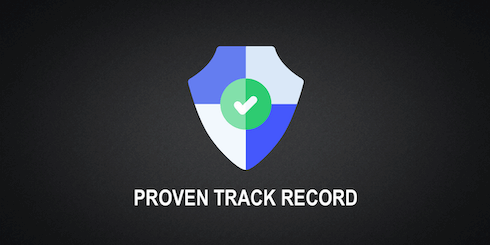
Our readers often ask us ‘what is the most important quality a Canadian online casino should have?’ They’re often puzzled at how ‘easy’ the answer is – a spotless track record.
Yes, that’s right, it’s just good old reputation, nothing more, nothing less.
Fancy buzzwords, advanced security systems, futuristic UIs – all of this is great, but can also be totally worthless if the casino doesn’t handle its business the way it should be.
Consistency in fairness, legitimacy, and transparency is everything you should look for in Canada casinos.
Even though licensing is always crucial, offshore casinos exist in a perpetual wild west when it comes to obtaining a certificate.
Too many tax havens and regulatory bodies seek to attract casino operators with lax criteria, as a means of prying them to seeking a license in their region.
While site owners are ecstatic about such opportunities, these licenses are often not a good indicator of a casino’s trustworthiness.
Some jurisdictions are very reluctant to revoke a license even when the site is confirmed to be a scam. They do this out of desperation, and out of fear that other sites would jump ship and leave a dent in their home country’s economy.
That’s why you should always do research about the track records of any and all Canadian casinos that you’re interested in. Have the players experienced any unpleasantness while playing?
Were there any data breaches involving this casino? Did they scam anyone? Are they regularly audited by reputable third-party organizations? Was the operator involved in some scandals in the past?
These are all questions you need to ask if you want to play in a relaxed and safe manner. A quick Google search and reading players’ reviews should help you make a solid conclusion.
Do your due diligence and you’ll have nothing to worry about.
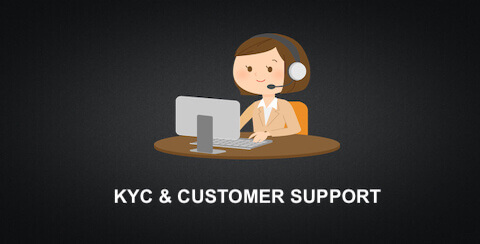
Usually, you can get a good grasp of any online casino in Canada just by interacting with their customer support team. Players should always feel free to ask even the stupidest questions, without the fear of the casino’s employees treating them differently.
Every individual deserves the same treatment, whether they’re a casual player or a high-roller who spends tens of thousands of dollars on a monthly basis.
Therefore, if you see a Canadian online casino offering faster responses if you spend more money playing games on their website, they don’t deserve your time. It’s unethical to lure people in by presenting their basic rights as privileges.
The best Canadian casinos should have multiple channels on which you can communicate with them. This can include email, contact form, phone, and live chat. Social media pages are a plus, as they show a casino is active in the community and wants to communicate with its players.
Another thing a proper site should have is a safe, but still efficient Know Your Customer (KYC) system. A KYC is basically the process of the casino verifying your identity, usually by asking for a scan of your government-issued ID. This process is essential, as it prevents scammers, fraudsters, and criminals from getting involved in the online gambling industry.
However, just because the process is necessary, that doesn’t mean it should be slow. The best online casinos in Canada should attend to your documents quickly and verify your account so you can start playing ASAP.
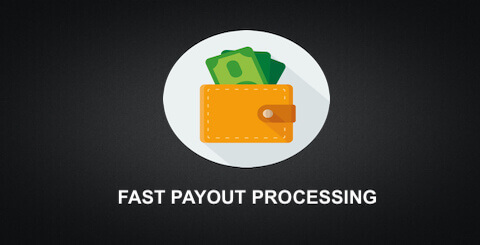
Why should you wait for your money if you don’t have to? It’s as simple as that, believe it or not. It’s a player’s right to have quick access to their winnings if they wish to claim them.
How does this work, exactly? Well, not all payment methods have the same waiting times for withdrawals.
This is mostly dependent on the technology they’re based on. For instance, every bank transfer has to go through robust checks before it’s cleared.
That’s why it takes up to 5 business days for you to receive your withdrawal. On the other hand, PayPal and cryptocurrency withdrawals don’t have to be so tightly regulated, and often arrive instantly or after a short while.
In addition to the payment method-dependent waiting times, casinos also have to clear every withdrawal request and process it.
The best Canadian online casinos do so swiftly, all in an effort to give their players the smoothest experience possible.
Consult authentic player reviews to ensure that this is the case.
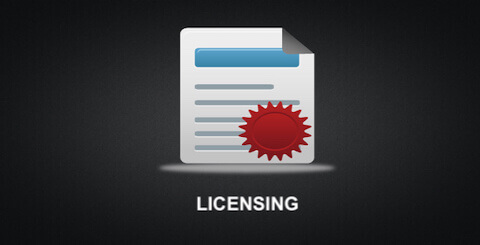
In order for any Canadian online casino to be taken seriously, they have to be licensed by a legitimate regulatory body.
For offshore casinos, this can get a bit tricky. Not every jurisdiction has the same rules, requirements, or verification processes.
Like we’ve said previously, some countries lure operators with low tax rates, almost nonexistent fees, and rather liberal background checks.
The most notable example of such an approach is Curacao. Everyone and their dog can obtain a license in this Caribbean country, as it prioritizes quantity over quality, as a means of boosting its economy.
Because of such cases, not all licenses are the same. The best Canadian casinos shouldn’t take shortcuts on the road to legitimacy.
By getting a license from a respectable gaming regulator, they are essentially showing players that they don’t mind spending more money or being more transparent.
While stronger credentials do involve higher fees and more scrutiny, they’re a clear sign that a casino is safe.
So, what should you look for? Well, Canadian online casinos that are registered by the Kahnawake Gaming Commission are considered to be the safest and most legitimate.
The Kahnawake Mohawk Territory in Quebec, Canada is one of the most respected jurisdictions when it comes to offshore casinos accepting US players. The same goes for the Costa Rican government.
If you see a casino that owns one (or both) of these licenses, you can rest assured that they’re safe and legal.
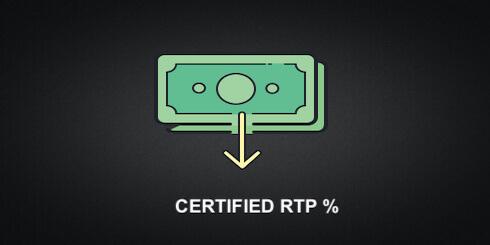
Yup, sorry, we’re going to have to get a bit technical with this one. Don’t worry, it’s for your own good.
The more you know, the better you’ll be at spotting untrustworthy sites and ensuring that you’re playing your favorite games in a fair environment.
What is RTP, then? Well, RTP stands for Return To Player. It’s a metric that expresses the expected percentage of wagers that the player will win back in the long-run.
For instance, if a slot has a 97.5% RTP, it means that you will win 97.5% of your money back over time.
Basically, the higher the RTP, the fairer and more lucrative the game is.
RTP can be calculated both theoretically and through real-time simulations.
Theoretical calculations are performed by mathematicians, using the combination of special software and the data provided by the game’s creator/operator.
Simulations are also conducted by special programs, but they mimic the real-life conditions the players will experience.
How do you know if a casino has fair RTPs? Well, through several different ways. Firstly, their games should be regularly tested by third-party companies, such as Gaming Labs International (GLI).
These reports should be published on a regular basis, both by the company and the casino.
Another way to determine the fairness of RTPs at Canadian casinos is to compare the RTP from the report to the RTP posted by the company. If the numbers are the same, the game is fair and safe to play.
Always look at audit reports before playing a game, regardless if you’ve tried it before you not. Better safe than sorry, right?

Let’s be fair – any casino site can purchase titles from developers and fill their roster with them.
In reality, it’s not that expensive. After all, you see the same titles at many different casinos, so it’s probably the bare minimum.
What sets the best online casinos in Canada from the rest are live casino games. They’re often a pretty reliable success metric that players can trust. Why?
By offering games by respected developers such as Evolution Gaming or Playtech, casinos allow their players to feel like they are actually on the Las Vegas Strip.
This is significantly more expensive than just buying RNG titles, but creates an atmosphere like no other.
You will get to watch real dealers throw the dice or hand out cards, while also having the ability to chat with other players and enjoy an interactive experience.
It’s something you just have to feel in order to know what we’re talking about.
Usually, investing this much into pleasing people is a sign that a casino is doing well financially. Also, it’s always great to see sites wanting to show their players what gaming is all about.
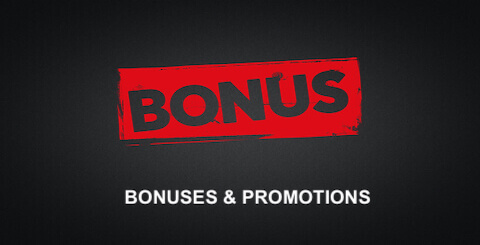
Canadian casinos often use bonuses and promotions to rewards players both new and old.
here’s nothing better than getting a reward for your loyalty or just for giving a new online casino in Canada a chance.
In the 2000s and 2010s, bonuses were mostly simple, boring, and only reserved for deposits via card or bank transfer.
Nowadays, you can get rewards in all sorts of ways, while using any casino banking method that you want. So, what can you expect from the best Canadian online casinos?
Well, proper casino sites tend to offer many different bonuses. For example, they have one for blackjack, one for slots, and a big one that encompasses all of their games.
Also, you should expect to see new bonuses and promotions added regularly, especially when the casino is promoting a new game they’ve just added to their roster.
There should be deposit or no-deposit bonuses for new players, as a form of a welcome gift. Old players also need to be motivated via boosts, bigger payouts, and all sorts of perks.
When you’re looking for the best bonuses at Canadian casinos, make sure that they have don’t have an insane play-through rate.
A play-through rate or a wagering requirement is the number of times you have to bet that bonus in order to be able to claim it.
Casinos wouldn’t survive a day if they gave out free cash that could be withdrawn right away, would they? Of course not.
Also, read the terms and conditions of each bonus thoroughly to ensure that there aren’t any hidden rules or conditions.
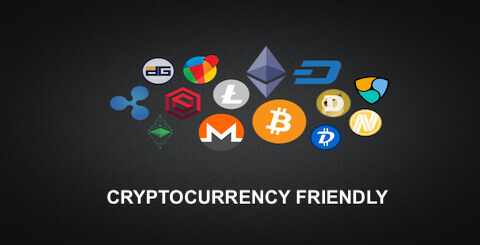
Even though almost every Canadian has a bank account and a credit or debit card, they are far from the most ideal payment methods.
Not only do you have to wait for a long time to claim your winnings, but it’s so easy for your banking credentials to land in the hands of cybercriminals if a data breach occurs.
After all, this is sensitive information, right?
Certainly. That’s why more and more Canadian casinos are moving away from bank-centric deposit and withdrawal methods in favor of cryptocurrencies.
Based on blockchain technology, cryptos allow casino players to make anonymous payments and receive their money quite fast.
All transactions are stored in a public ledger, which is accessible to anyone. No transfer of funds can be tampered with, as they have to be verified by other users in order to be officially cleared.
Today, you can find many Bitcoin and Ethereum casinos.
Even less coveted cryptos such as Litecoin, Dogecoin, and Ripple are gaining a foothold in the online gaming industry.
If you see a casino accepting deposits in this manner, you can rest assured that they care about your safety.
Combine that with an efficient KYC system, and you have an ideal set of measures designed to combat nefarious activities, while still giving players the option to keep their info hidden whilst making transactions.
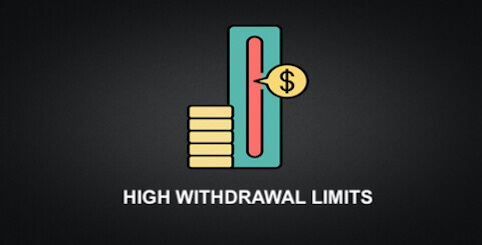
While not everyone is a high-roller, everyone should have sufficient room to become a high-roller, if they wish to do so.
It all comes down to this, at least when we’re talking about withdrawal limits.
The very best online casinos in Canada understand that players might get insanely lucky at times.
If such a thing occurs, you should have the ability to withdraw all that money at once. It’s as simple as that.
A good casino shouldn’t limit its players. When you see low withdrawal limits, it’s almost always a strategy to entice players into gambling more of their money.
For instance, if you’ve just won $10,000 and the casino only allows you to withdraw $1,000 per day, you’re tempted to play some more while you wait to withdraw the rest.
It’s a rather unethical strategy that isn’t talked about enough. Even if you’re a casual player, you should feel comfortable playing at Canadian casinos with high withdrawal limits.
It’s a sign that the casino understands that players like to play in different ways, and allows them to feel at ease.
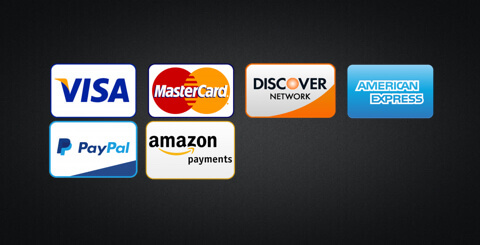
There’s nothing worse than coming across a great Canadian online casino, only to find out that they don’t accept deposits from your preferred banking method.
What should you do in such a situation? Is it worth switching banks or creating an account at a new eWallet? Of course not!
Players shouldn’t feel pressured to alter their online banking habits just because a gambling site is too lazy to cater to them.
Every quality online casino in Canada should have a clear understanding of how locals like to transfer money.
With that understanding in mind, they need to add banking methods that resonate with players and remove any need for creating new accounts or changing habits.
It’s nice to be able to deposit with a wide range of payment providers, such as PayPal, Canadian Express, MoneyGram, and others.
The wider the choice, the better the casino is at giving the people what they want. Canadian casinos that are successful at accomplishing this are more likely to be legitimate as well.
Some financial institutions are incredibly strict when it comes to collaborating with casino sites, so consider this as an additional seal of approval.
On average, online slots have RTPs that usually falls in the 94-98% range.
Anything below that is unfair and shouldn’t be considered, while anything higher is probably too good to be true.
It’s also widely known that online games have much better RTPs than their land-based versions.
This is the case because Canadian casinos are legally required to disclose the RTPs of their games.
Many gambling regulatory bodies also have their rules considering this matter, as they are only willing to give licenses to transparent casinos.
Also, game developers require all casino sites to offer their games in exactly the same way they’re made, without a single tweak. With land-based slots, this isn’t the case.
One of the biggest problems with slots in Vegas and Atlantic City is that the same game can have a different RTP depending on the casino you’re in.
Even the best game provides don’t require each and every casino to conform to a single RTP.
All of this creates an atmosphere of confusion that often leads to players unknowingly relinquishing a lot of their money.
Almost always, land-based casinos don’t disclose the RTP of their slots.
They also resort to deceptive marketing, using slogans such as ‘PAYS UP TO 99%.’ Theoretically, their slots could have an RTP of 93% and it would still technically be true.
Usually, the higher the denomination that’s put into the slot machine, the higher the RTP.
Casinos like to reward risk-takers, so it makes sense to place $5 slot machines at a 95-97% RTP, while penny machines are basically a robbery at 88-90%.
Claiming a bonus at any Canadian online casino is a piece of cake. You just create an account, read the terms and conditions, follow the instructions, and enjoy your free money.
It’s also a widely-known fact that online casino bonuses are much more lucrative. This is because it’s harder to entice people to join when they’re online.
If you find yourself at a land-based casino, you are there to gamble anyway, and the establishment doesn’t need to use rewards to convince you to do so.
Online casinos offer many more options, including no-deposit bonuses, loyalty bonuses, free spins, bet boots, and so much more. Simply put, there are just more ways a player can be approached and rewarded.
There are situations when land-based casinos offer financial incentives for new players. This usually involves giving them your ID or passport, and getting a few extra chips or a voucher for free spins at the slots area.
However, these bonuses are much, much rares than online ones. If you’re playing at an online casino in Canada, the site has control over the wagering requirements. You simply cannot withdraw the money until you fulfill those requirements.
At land-based casinos, no one can control how many times did you bet your free chips. You can just make a U-turn, go to the Cashier, and cash out, right? Certainly. It’s simply not viable for brick and mortar establishments to offer bonuses.
Also, there’s no need. People don’t drive to Vegas and enter a casino to look around. Casino owners already know that you’re there to spend money and you don’t need to be encouraged by a bonus or two.
Here’s a situation where even the worst online casino in Canada is so much better than land-based ones. Game developers can design table games however they want.
They can alter the basic variants of poker, blackjack, and roulette and turn them into completely new games.
Technology makes everything possible, so online table games are an ideal choice if you want to experiment. With the growing popularity of live casino games, gambling online has become much more realistic.
You don’t have to drive to a land-based casino to chat with the dealer and other players. All you need is an internet connection and a bit of free time. It’s much more convenient, plus you can play games that simply don’t exist in reality.
While nothing beats the feeling you get when you’re on the casino floor, it’s still a limited experience.
You can only play roulette in so many ways. You can only play blackjack in so many variations.
Land-based table games cannot award you gargantuan multipliers, they can’t be modified using our imagination.
In-person contact with other people is certainly invaluable, but it comes at a price.
Table games in brick and mortar casinos still have to respect the laws of physics and are, after all, dependent on the ideas and wishes of the casino’s owners.
Just like land-based casinos are limited due to the laws of physics, online casinos are limited due to technology and protocols.
Nowhere is this more evident than when it comes to payments.
Instant deposits are a possibility, but only with a few eWallets and payment gateways. Withdrawals, on the other hand, can be a nightmare to claim.
On average, players at Canadian casinos have to wait 24-48 hours before they can claim their winnings. If you want to use that money for something else, you cannot do it immediately.
You win some chips. You walk 30 feet to the cashier. You turn those chips into money. That’s it!
Land-based casinos still reign supreme when it comes to claiming your winnings.
This system has become so easy and streamlined, it’s hard to argue against it.
Still, keeping your money in a secure online account is still much safer, but many players prefer convenience over a few extra layers of security.

The industry is a fast paced environment where trends change as fast as fortune on slots.
Industry as a whole needs to be able to pass legislation and quickly approve or iterate changes.
Taking a few years to regulate a market or approve a new game type just won’t cut it.
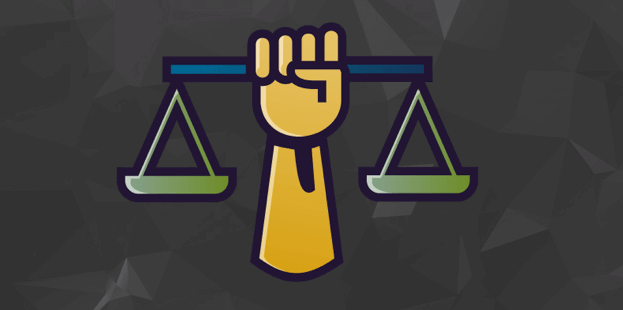
Everyone should be given a fair chance. Players, suppliers, operators and the government.
Fair RTPs for players that leave enough room for suppliers and operators to profit.
Gambling taxes that let both the operators and governments make a lot of money.

We are pro local market regulation as it seems to serve a great purpose that most governments set out for online gambling.
Local regulation means taxes paid to players’ own government, which is then used to improve the very environment they themselves live in.
Sounds like a win to us, even if the games of chance weren’t treating the player well.

Enough with the 35% GGR taxes for operators in a market with high competition and marketing spend.
All stakeholders involved need to look at the bigger picture. If the taxes are too high, no licenses apply and revenue goes to offshore casinos.
Sustainably taxed gambling markets will flourish for decades to come and that’s what we all want.

ZK International Group’s xSigma subsidiary acquires live golf betting software system.

Wynn Resorts reveals it intends to take its interactive business into public ownership.

Company makes first entry into LatAm market following the acquisition of Alfabet S.A.S.

Kindred Group’s Unibet Interactive brand wins direct market access mobile sports betting permit in Virginia.

Profits at High Street bookmaker and online gambling giant hit by the impact of COVID-19.

Three US States have turned their backs on gambling legislation, with Texas, Alabama and Wyoming all voting down the chance…

The Cosmopolitan joins the two Wynn Strip properties in getting approval to return to 100% capacity.

Star has become the second Australian casino giant to face a damaging finance investigation.
The team at iGCouncil has done multiple in-depth gaming market analysis with thousands of player interviews to understand the most popular forms of gambling and player behaviours in various localities.
We’ve then offered an educated opinion on how these game types could be taxed on the supplier and operator level in a way that is mutually beneficial and sustainable over the longterm.
Being in online gambling since the late 90s lets us offer valuable and timeless advice to those looking to implement regulation of online or land based gambling in their jurisdictions.
Having worked with some of the most successfully regulated markets we also know that in many cases there is no need to reinvent the wheel.
Jurisdictions can just duplicate what works and avoid what doesn’t. We don’t have all the answers, but certainly a fair bit of them.
Advertising is what makes or breaks the successful operations in our industry.
We’ve worked tirelessly with regulators, operators and affiliates to ensure a fair and sustainable model where ethical advertising is allowed and unethical forms of it are properly and efficiently dealt with.
Minors should face as little exposure to gambling as possible, but should also be educated early on of the real risks and potential consequences.
While there are no ways to hide iGaming from minors, we’ve helped multiple regulators create frameworks that properly protect them.
iGaming is one of the fastest growing, but also competitive sectors. We’ve done in-depth analysis of many markets that are still up and coming and not saturated.
Some of these are free to use via our website while others have been done on a private contract and include orders from local governments to assess their own market, but also from tier 1 operators to understand the viability of entering a particular market.
Between our team we have a few dozen years of experience as being players and talking to other players too.
Having conducted thousands of hours of both play and game related talk we are able to help new, up-and-coming gaming suppliers find their target audience and product-market fit.
Compliance has quickly grown from tomorrow’s problem to be one of the most time consuming tasks for operators, suppliers and regulators who implement them.
We’re here to ensure that players get the protection they deserve, but also that all stakeholders in the value chain remain happy and profitable.
We’ve gone as far as do hours of brainstorming to help a stagnating game supplier reinvent themselves. That same supplier went to achieve a 50% year on year growth later on.
While this is not our core focus area by any means, it just shows that a fresh set of experienced eyes can be very helpful.
With hundreds of connections throughout the iGaming industry we’re always glad to help with introductions between businesses that are potentially complimentary to each other.
This might be a simple word of mouth introduction or come via one of the many guides we’ve created for affiliates, operators, players or legislators.
Non compliance from an operator in today’s iGaming industry could lead to severe fines or even worse, losing a license.
We’re here to help with implementation of tools, processes and new technologies that can quickly detect any potential threats ahead of time, ensuring that your business remains compliant at all times.
We can also help with license application processes for locally regulated market entry and an overview of compliance features needed across your platform.
Our list of clients include tier 1 suppliers and operators who’ve hired us on a consultancy basis.
Anything from detailed analysis of the marketplace to compiling lists of potential complementary acquisitions.
We’ve done work for several big name, stock market listed affiliate companies and helped them acquire 7 and even 8 figure businesses.